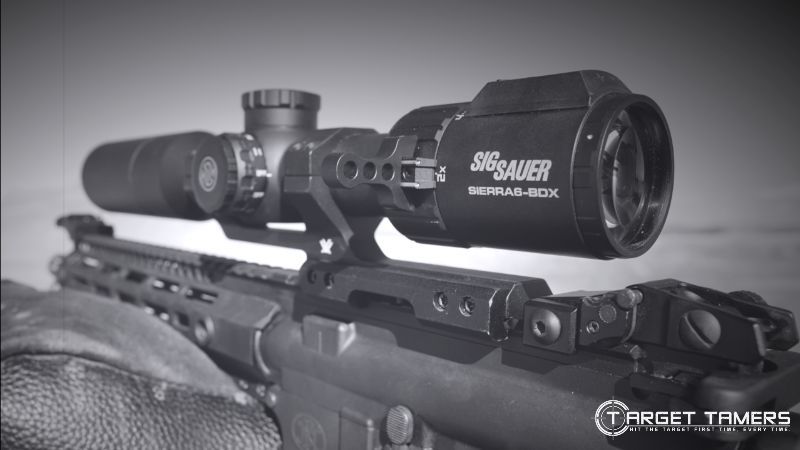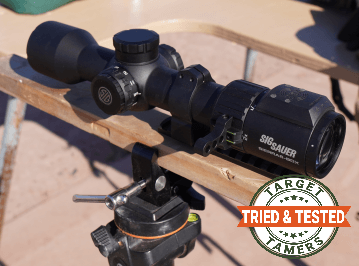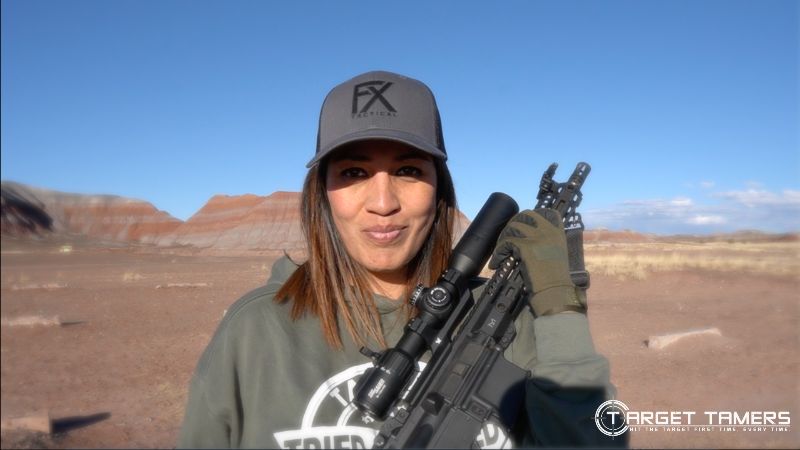What is Sig’s BDX System?
Is it worth it?
Target Tamers purchased the Sig Sauer Sierra6 BDX 2-12x40 riflescope and the KILO1600 BDX rangefinder to field test the BDX system and offer up our Sig Sierra6 BDX review.
The Sig Sauer Sierra6BDX is a smart scope that is easier to use than one may think. A Bluetooth module on the ocular bell pairs with a BDX rangefinder for updated aiming points based on the ranged target distance. But it can be manually configured to a predetermined group for holdovers too.
For any windage holdovers, you will need to pair it with a BDX rangefinder or at least use the app to add custom data.
While it all sounds quite technical, it’s not that difficult to use the Sierra6 scope. Let me break it down for you.
My Sig Sierra6 BDX Review
Quick Overview...
What I Like: BDX feature
What I Don’t Like: Price
Best Uses: Big Game Hunting, Varmint & Predator Hunting, Centerfire Rifles, Muzzleloaders, Low Light, Long Range, BDX Compatible
- Magnification: 2-12x
- Objective Diameter: 40mm
- Coatings: FMC
- FOV: 52.5-8.7 ft/100 yards
- Eye Relief: 3.9-3.7”
- Adjustments: ¼ MOA
- Dimensions: 10.8” L / 21.4 oz
My Verdict: The Sierra6 BDX 2-12x40 riflescope is feature loaded. It has the foundation from sharp optics and a solid 30mm tube to resettable turrets. The added features from BDX to MOTAC, LevelPlex, and KinETHIC technologies makes it a very advanced optic for those eager to make the most of every shot.
Why Trust Me?
After hundreds of hours of hand-testing rifle scope in the field and on the hunt, and thousands more hours researching, writing, photographing and creating videos about them, I feel I have earned the title of expert when it comes to optics!
Optics are not just my passion, but also my full-time job!
I get my hands on as many of the optics I test as possible (through buying, borrowing or begging!) and run them through their paces to make sure they will perform out in field.
Check out our optics testing process here.
Over a decade of experience centerfire rifles, varmint & predator hunting and muzzleloaders has been integral in putting together this Sig Sauer Sierra6 BDX review.
Who is the Sig Sauer Sierra6BDX 2-12x40 Best Suited to?
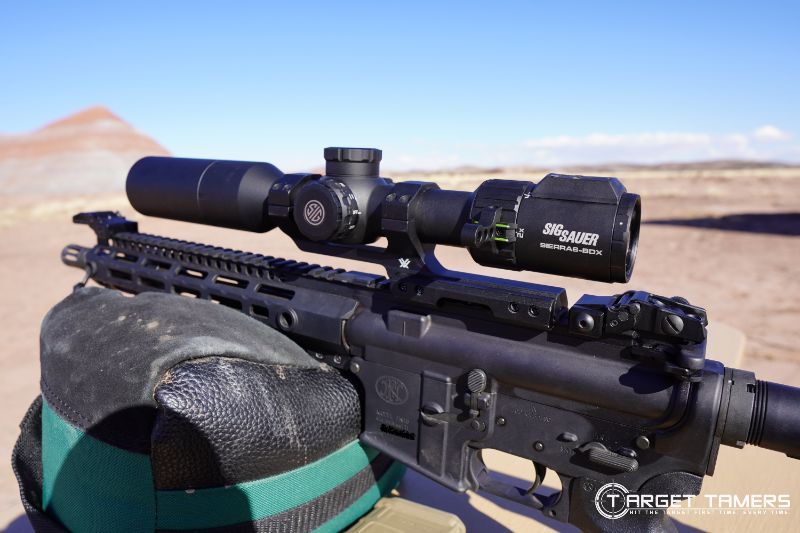
The Sig Sauer Sierra6 riflescope is best suited to shooting inside 1000 yards. The 2-12x40 scope is the lowest powered model in the Sierra6 series and all have 6x zoom. It's the most affordable of the line but suits long-range shooting and brush, timber, and even some big country hunting.
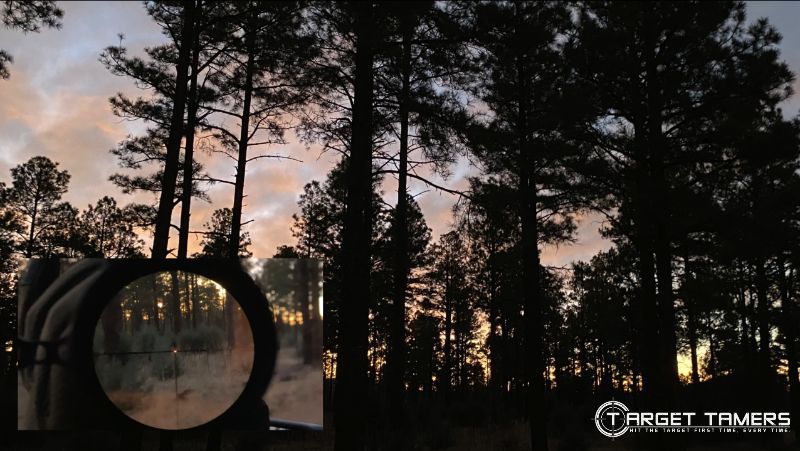
If you’re already accustomed to using an app for long-range shooting and hunting, making the transition to the BDX system will be a non-issue. The Sig BDX App is available on both Android and iOS devices where custom ballistic and environmental factors can be entered.

However, if you’re in the market for a laser rangefinder upgrade, I strongly recommended pairing this BDX scope with a BDX rangefinder. It’s common sense at this point to pair the two for instant ballistic data exchange for a seamless learning curve into long range shooting.
How Does the Sig Sauer Sierra6BDX 2-12x40 Perform?
Overall, the Sierra6 BDX riflescope has crisp and clear glass with visible chromatic aberration at max power in the worst conditions though it’s not a huge problem in actual use and is more apparent in digiscoping. Parallax is fixed at 100 yards, and it’s IPX7 rated for waterproofness.
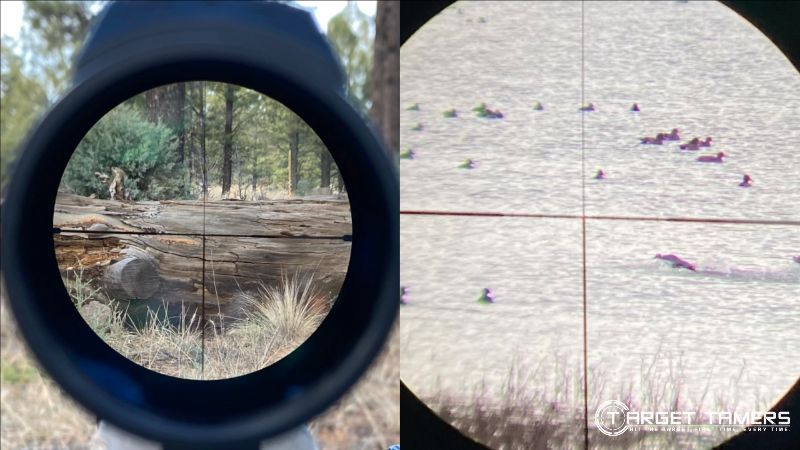
It’s fogproof with what is assumed to be nitrogen gas that’s been used to purge oxygen from the tube. The finish has held up very well to repeated mounting from a one-piece to rings and done all over again on various rifles.
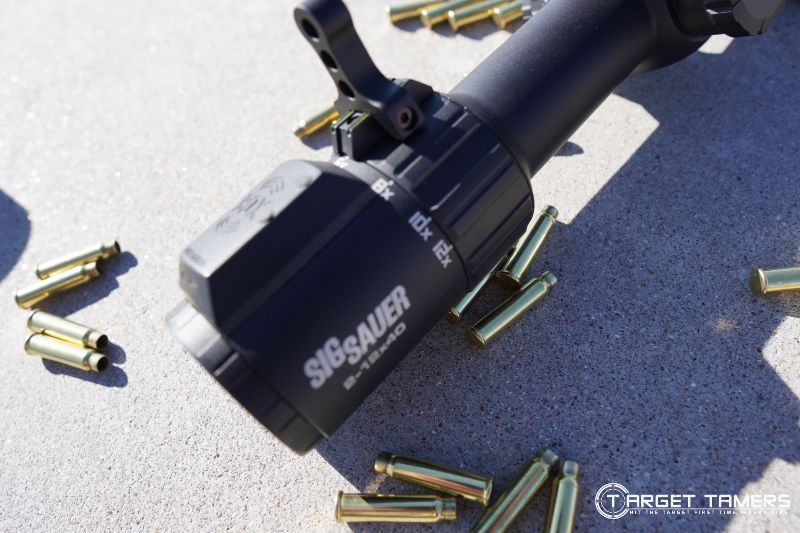
One thing I want to point out is the very nice eye relief of 3.7-3.9”. It feels like 4” at 2x power and it’s not bad at all at max 12x power. It would work on a muzzleloader or heavy kicking rifle but be sure to not to creep the stock and keep hat brims out of the way - user error learned the hard way!
What about the BDX?
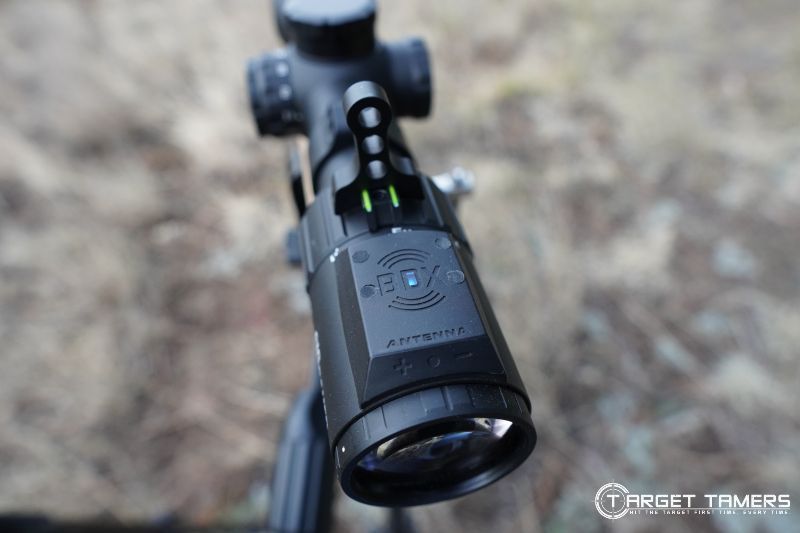
I won’t lie, the thought of having to get tech savvy with not only one optic but two, and then add an app into the mix made me think that this was going to be a lot more work than it is worth. The fact that bare basic instructions (if you can call them that) with tiny print was all that was included in the box didn’t make me feel very confident.
However, I eventually figured it out. If you’re an old dog that doesn’t want to learn new tricks, this setup isn’t for you. But if long range is something you want to get into, the BDX system is an easy way to go about getting there.
Features & Benefits of the Sierra6
BDX Feature
I set the ballistic parameters with the Sierra6 manually by bypassing the BDX App. It seems a bit convoluted at first, but it’s actually brilliant for a manual process. I had to start with the illumination off and magnification at minimum power (2x). Checking what group out of the eight my ballistics fell into; I knew I needed Group 5.
First step, rotate the illumination dial to the corresponding group number, so setting 5. Throw the power lever all the way to max mag and then back to min. mag three times. The BDX light indicator flashed five times and then I had five illuminated aiming points on the elevation crosshair of my reticle.
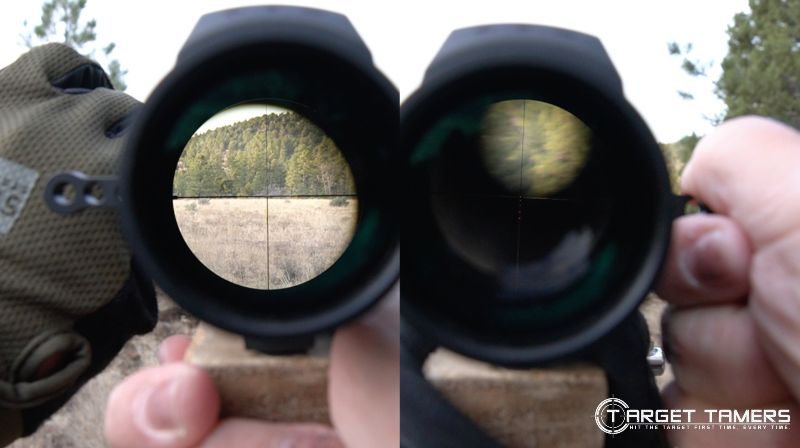
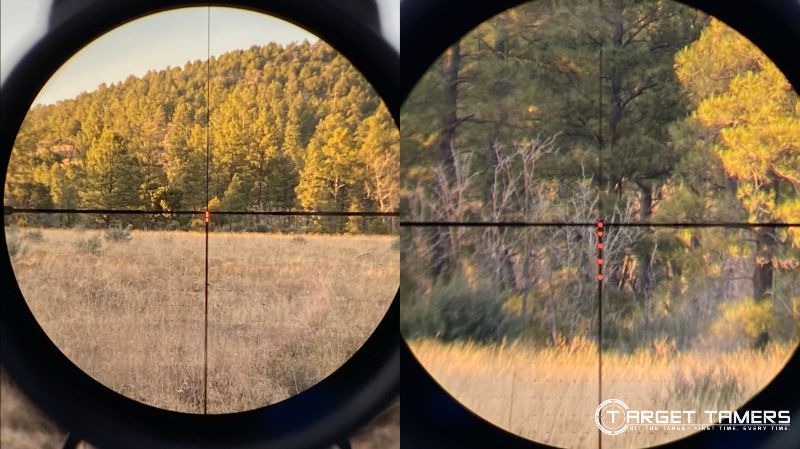
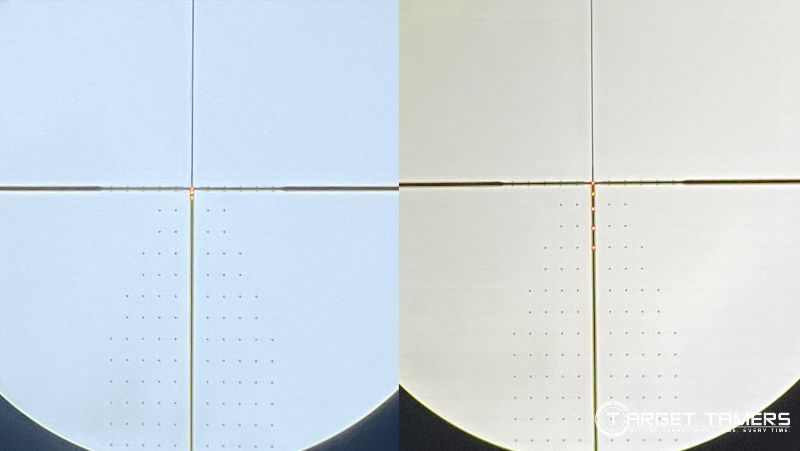
The center dot is my 100-yard zero and the corresponding dots are set for drop out to 500 yards. With the app, there is a lot more that you can do with or without a BDX rangefinder. However, only with a BDX rangefinder can you get wind holds. In the app, you can input data for environmental factors and custom ballistics for up to 25 shooter profiles.
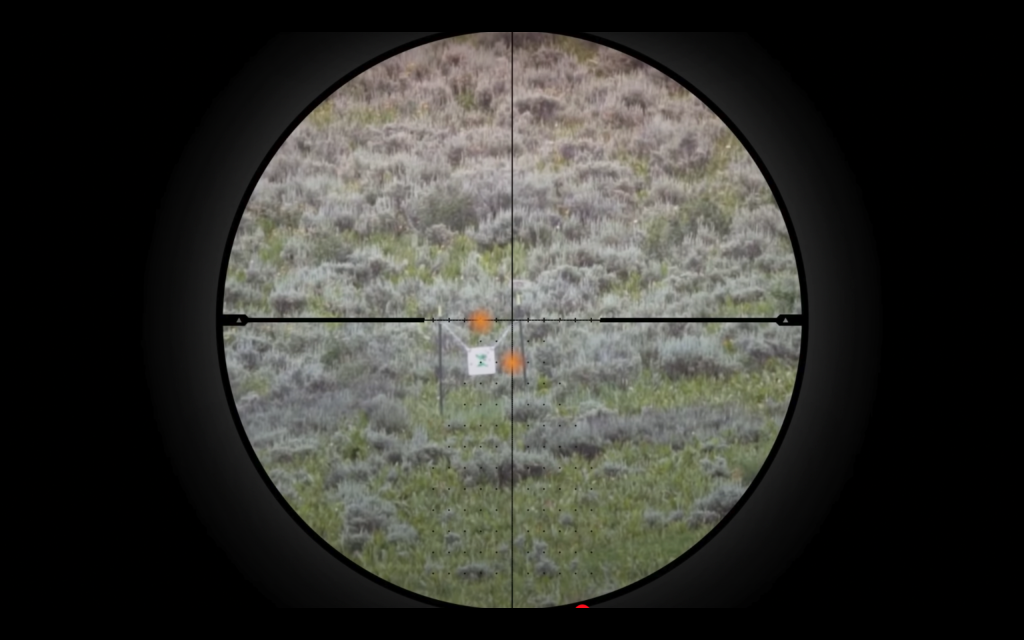
Since there are LEDs on only the windage and elevation crosshairs, the holdover points extending from them do not illuminate. Instead, you follow along the “lines” of the illuminated dots to meet up at the corresponding aiming point. That is the dot that you will use for the conditions and distance.
Illumination
What came as a surprise was that the Sierra6 needed two CR2032 batteries to operate. I thought Sig was being nice and threw in a spare for free – uh, wrong. After only a few days of playing with it, I was already down one bar, so it’s fair to say that the Sierra6 with its Bluetooth is a power hog. Word of warning – keep some spares with your gear.
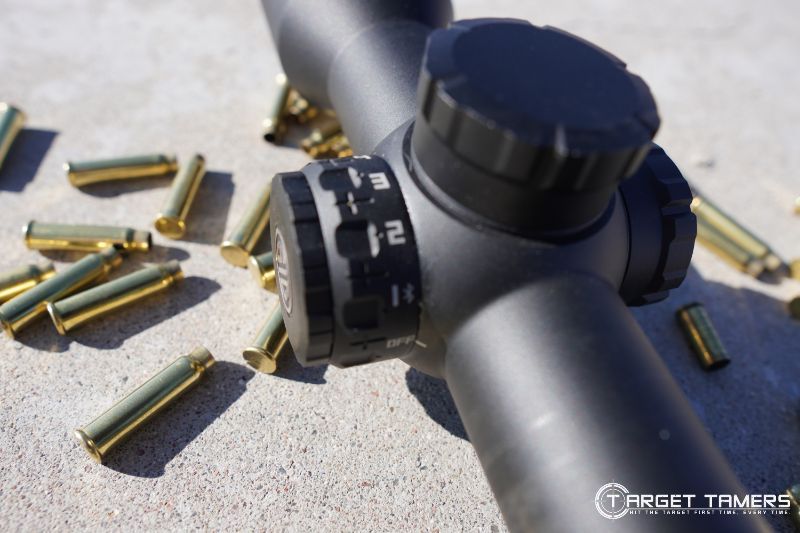
You can tell how much life is left in the batteries when you turn the illumination on. It runs through a power cycle, and you’ll see bars illuminate that run up the elevation crosshair starting from the bottom. Four bars indicate full battery life.
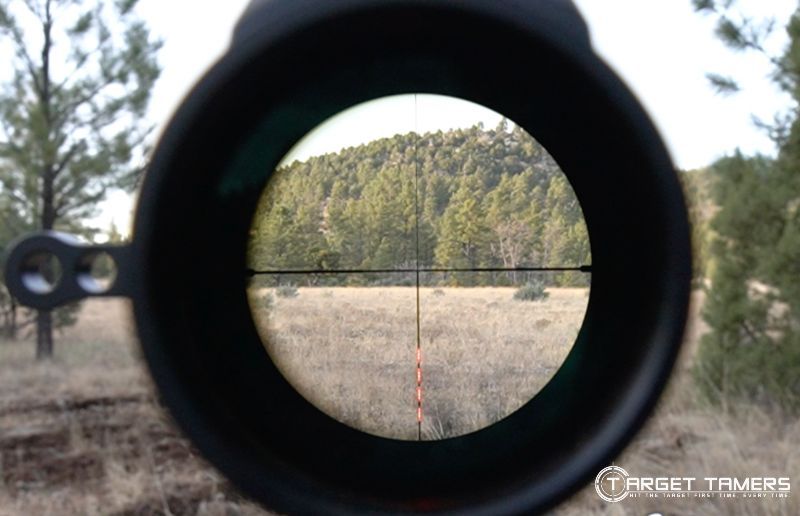
The illumination is very good and bright enough to see at minimum power. I didn’t use it at the range as the crosshairs are bold and I’d even say borderline thick when I’m aiming for 1” squares at 100 yards.
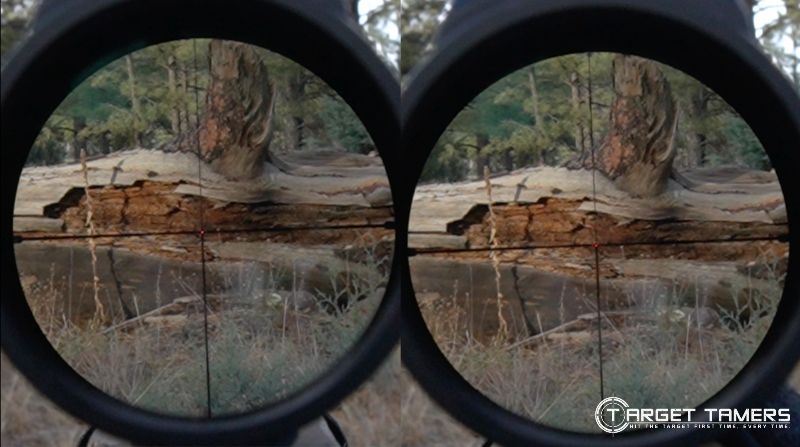
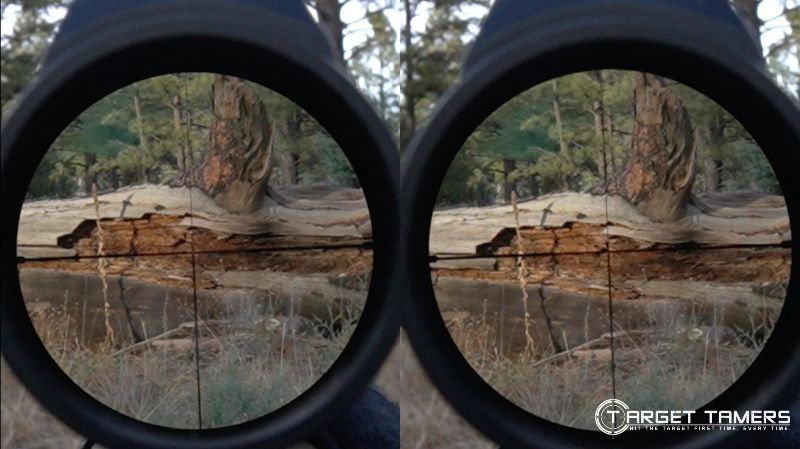
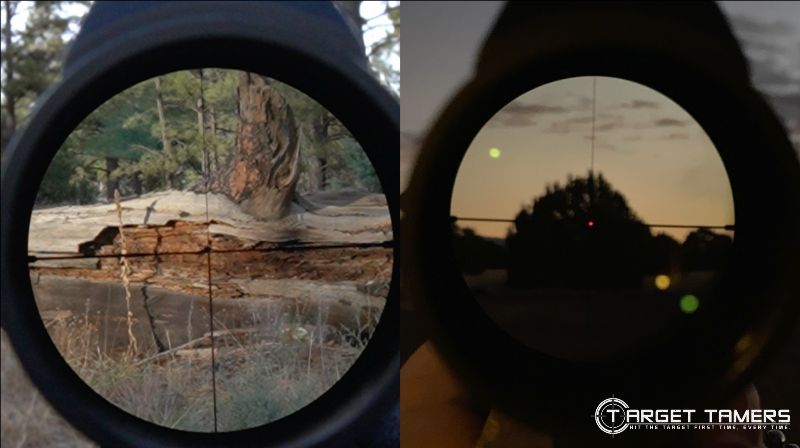
It has max illumination of 10 levels with the first two compatible with night vision. There are power OFF settings before setting 1 and after 10. I like both OFF settings because the knob has stiff resistance – maybe a little rigid for me but not bad enough to complain about it… much.
Mounting
I mounted the Sierra6 with the Vortex Sport Cantilever Mount on an AR-15 without issue. It sat at a perfect height that I didn’t have to remove my UTG flip-up rear sight. I put a few hundred rounds downrange with this setup.
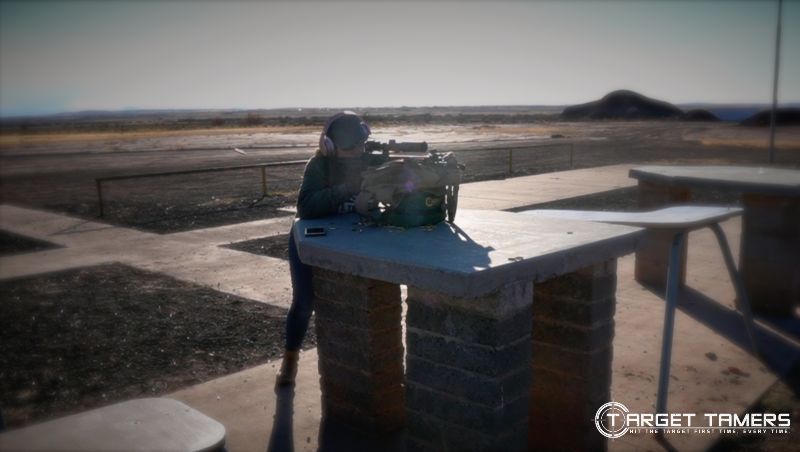
On a CVA Wolf muzzleloader, the cantilever mount sat really high to allow the objective bell to clear the rear open sight. This would easily be remedied by removing the sights, but the muzzleloader doesn’t belong to me, so I wasn’t about to mess with it.
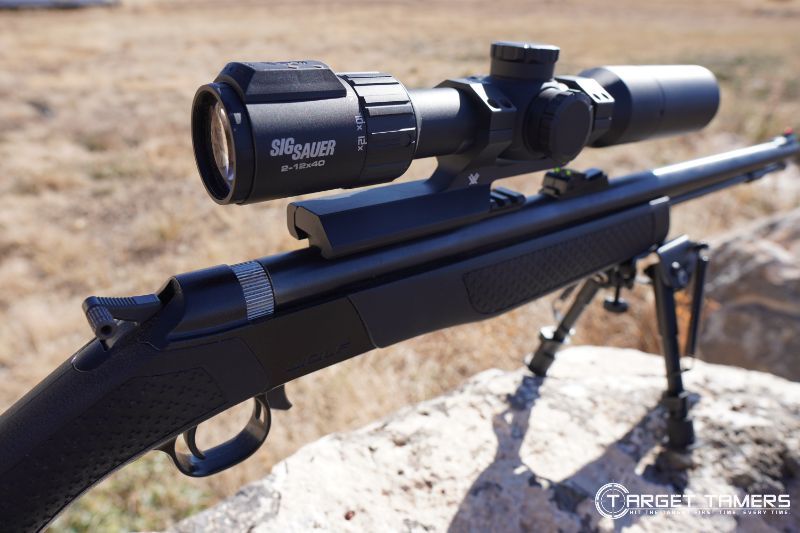
I shot at 50 yards, and I immediately regretted crawling the stock to get a full, unobstructed FOV. The Sierra didn’t “kiss” my face, but it did get the brim of my hat and it still hurt. I mounted it with medium height 30mm rings and removed the sunshade, but the objective bell still hit the front sight. So, short of removing the iron sights, I can’t use this scope on this muzzleloader. I also think that given its features like the BDC reticle and up to 12x power, it’s overkill for a muzzleloader anyway when most of my shots with it are less than 100 yards.
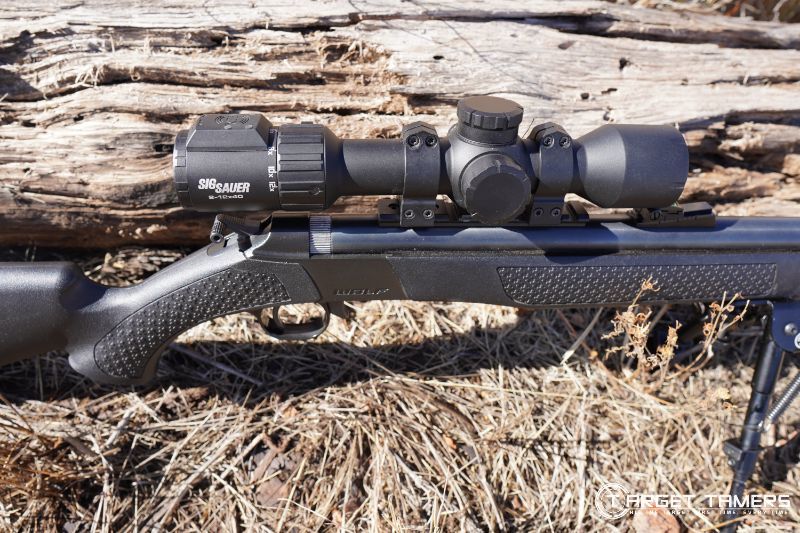
I really like the Sig Sierra 6 on my Model 70 30-06. It clears the action, I get a clean FOV without crawling, and the BDC reticle will be great for big game hunting. I had to shimmy the scope through the rings to its extreme ends so that the rings could seat in the single slots of the mounts. I don’t like this. With a single piece standard length rail for my Model 70, I’ll be able to seat the rings closer to the middle, but then there are the trade-offs for a one-piece mount now aren’t there? For now, this will work.
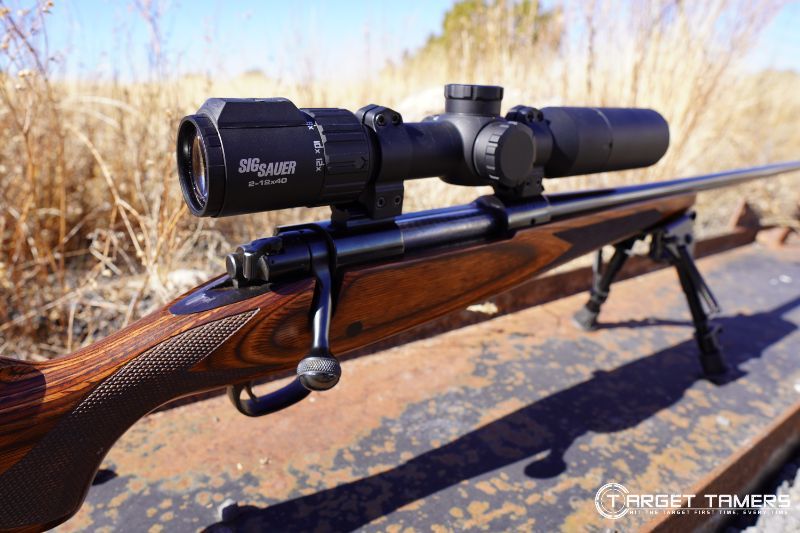
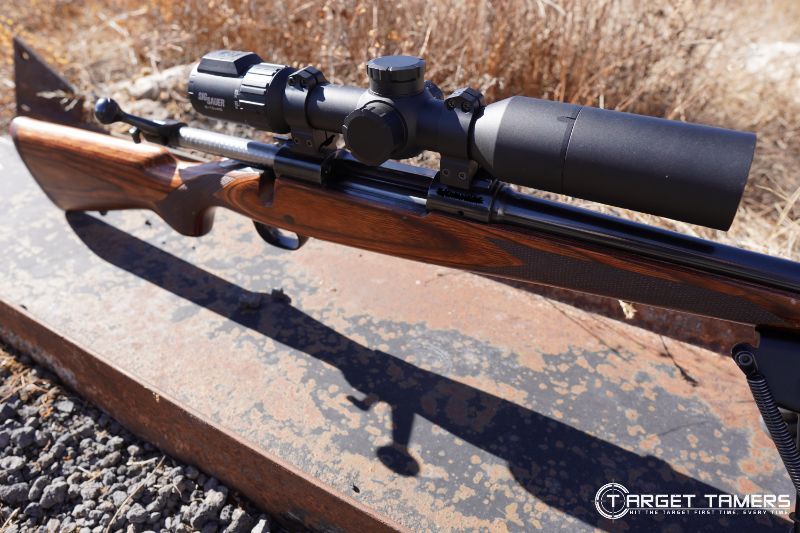
Additional Features
I forgot about the LevelPlex feature. That was until I saw that the slightly thicker posts at the 9 o’clock and 3 o’clock positions would illuminate every now and then when I messed with the scope and as I was mounting it. It’s the anti-cant system kicking in thanks to the integrated illuminated digital level.
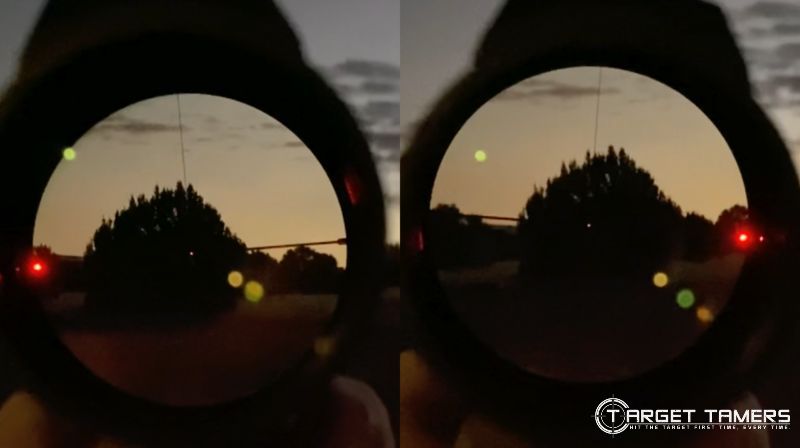
Turns out that I didn’t need my 30mm ring bubble level. The corresponding LED will light up when the scope is canted allowing you to correct it to within +/-0.5 of accuracy.
I’m sure the MOTAC helps with battery conservation, but I still think I’m going to need an abundance of CR2032 batteries especially when using it paired with a BDX rangefinder.
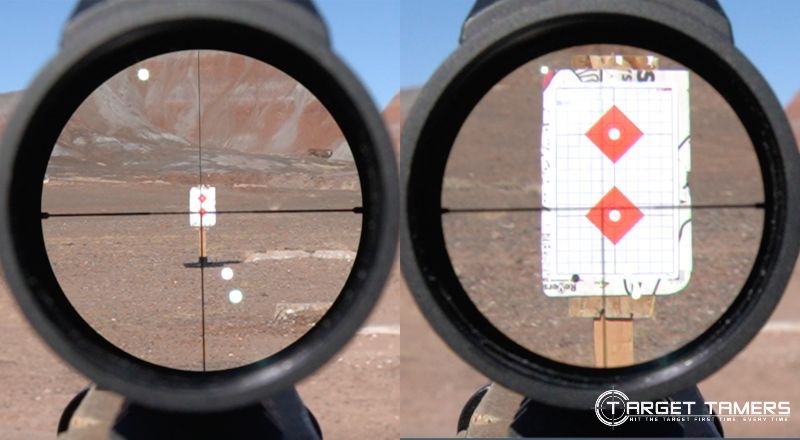
From what I gathered, the MOTAC puts the scope in standby mode after 5 minutes. A slight nudge wakes it up. Later I found out that the timer is adjustable, so you can either turn it off or set it for 1 min, 2 mins, 5 mins, or 10 mins.
I picked it up once after a while and the MOTAC didn’t kick in. Uh-oh. Turns out that it has a Hard Timeout feature. After 30 minutes of being in standby once MOTAC is initiated, the scope will turn off the illumination. Turning the illumination knob will reactivate it.
Sig Sauer Sierra6 + Kilo1600 BDX
Overall, the Sierra6 BDX riflescope needed to be tested with a BDX rangefinder to discover its full potential. Paired with the cost-effective KILO1600 BDX, instant communication between the two optics was established.
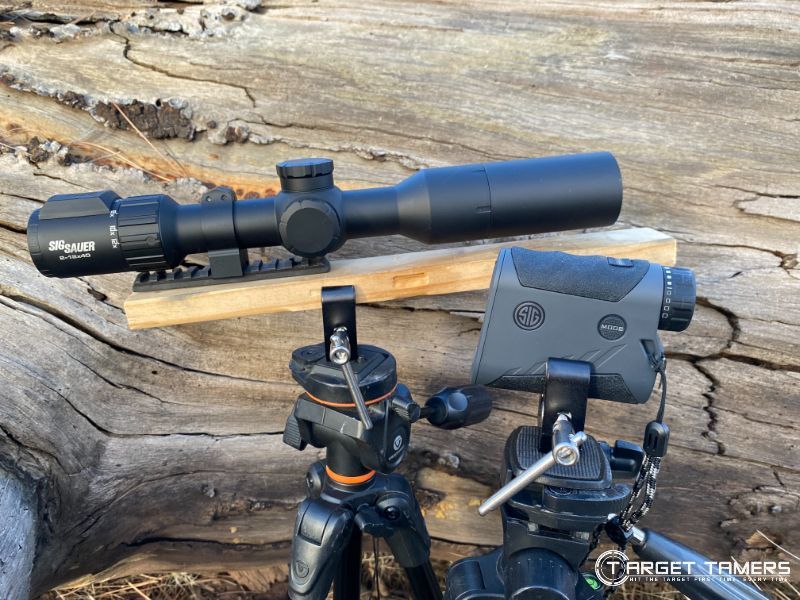
Remember how I mentioned five illuminated aiming points pop up on the crosshair? When I paired it with the KILO, the five dots disappeared and only the center aiming point is illuminated. When you range with the KILO, it calculates the ballistic solutions and sends that to the riflescope updating the reticle with the most accurate holdover point in real time.
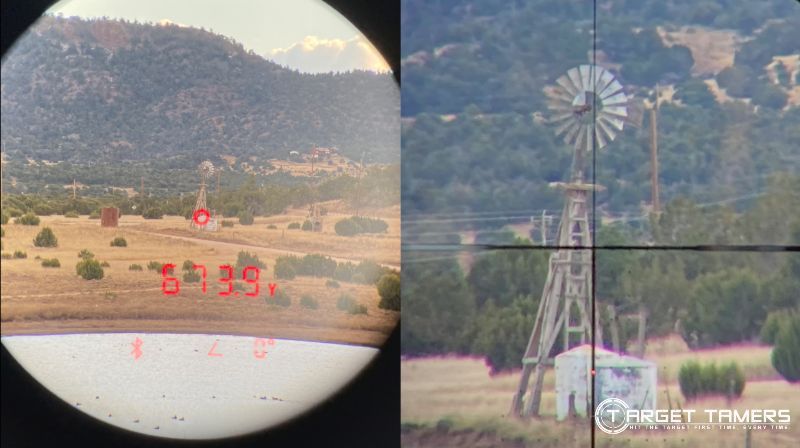
You can do all this without using the BDX App. But at some point you should download it and use it or you’d be at a severe disadvantage. You can input environmental factors, and of course, you’ll also need to confirm your holdovers for the distances you plan on shooting.
The QuickBond feature is fantastic and so easy. You don’t need to go into the app to pair the devices. Put the scope into illumination level 1 and hold down the Mode and Range buttons on the rangefinder until the “bond” display (through the LRF) is up. After a few seconds, the display reads “good” and the blue light on the BDX module on the scope stops flashing and becomes solid.
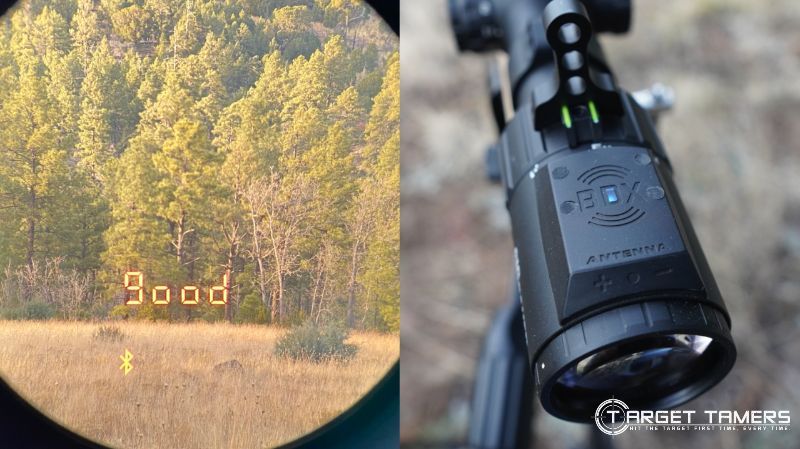
Limitations of the Sierra6 BDX Scope
Price
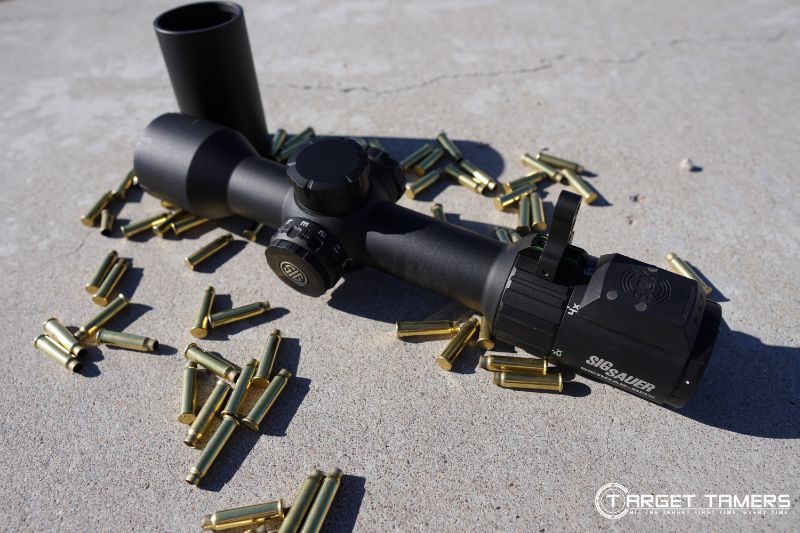
In general, long-range getups are expensive and the Sierra6 riflescope is no exception. Retail prices put it over $1000 and a BDX rangefinder makes for a costly system. However, the BDX Bluetooth connectivity makes it a riflescope that offers more than competitive and cheaper scope alternatives.
From what I’ve seen, the upside is that combo (BDX scope and rangefinder) buys are available to gain some initial savings. If not, the Sierra6 often goes on sale at a discounted price. That would be time to snag it.
Popular Questions
KinETHIC is the kinetic energy transfer indicator feature where a custom threshold is set in the app in either Energy (ft-lbs) or Velocity (fps). If a shot goes below the set threshold for the distance that was ranged with the BDX rangefinder, the holdover point will indicate so by flashing twice.
While it’s a great indicator that you need to get closer to ethically take your game, it does make one think twice about whether that shot should have been taken in the first place. More importantly, knowing what your limits and realistic parameters are in hunting conditions comes with implementation. ie., get out there and practice. KinETHIC can also be turned off.
The Sierra6 BDX scope can be used without a BDX rangefinder. It can be manually configured to a predetermined ballistic group of which there are 8. It also syncs to the BDX App. Though the scope and rangefinder can work independently of each other, together they make a proficient ballistic team.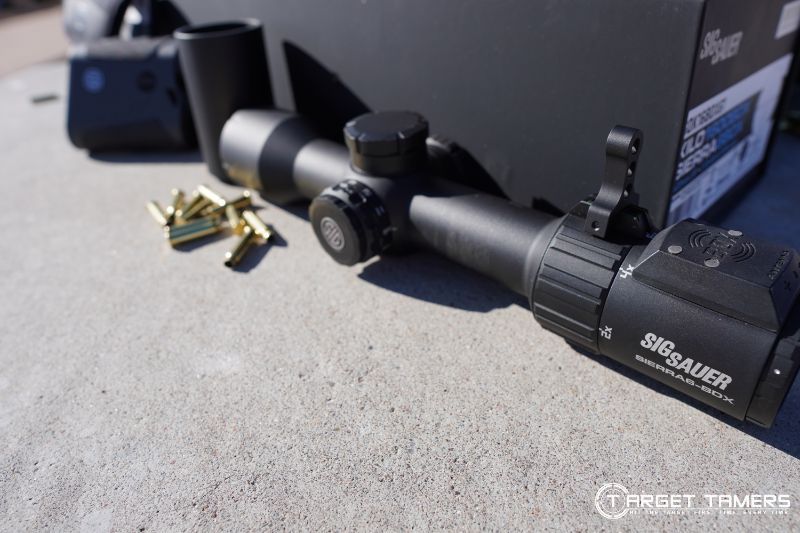
Sig Sauer’s BDX system in the Sierra6 BDX 2-12x40 riflescope is legal for hunting because it incorporates an illuminated reticle with LED lights. There are no lasers in the riflescope. With BDX pairing, it acquires data over Bluetooth for updated holdover points.
Below: this bull was too fast to catch for digiscoping!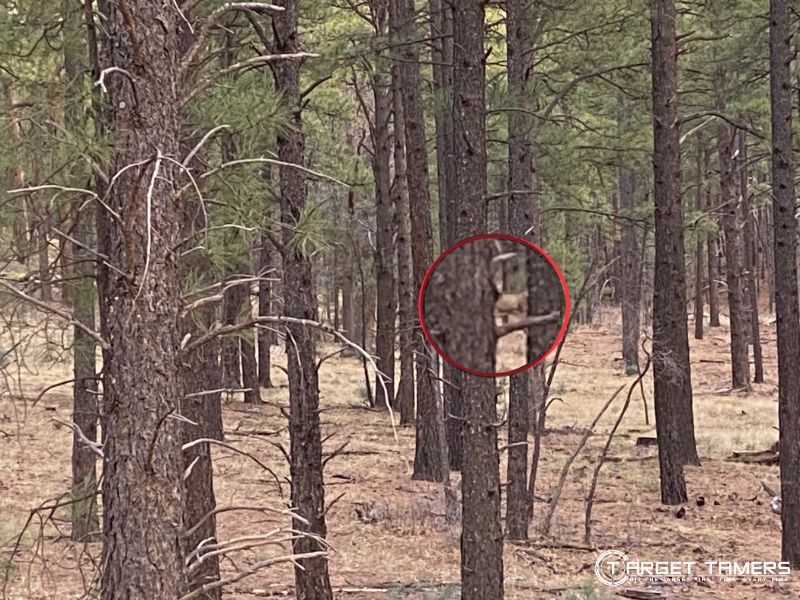
The Sierra6 BDX scope provides ballistic solutions for holdovers up to 800 yards with the ABU mode in the KILO1600 BDX rangefinder. For ballistic solutions further than that, BDX-X rangefinders are required to pair with an external device like a Kestrel for extended ballistic solutions.
Below: Sierra6 ¼ MOA turrets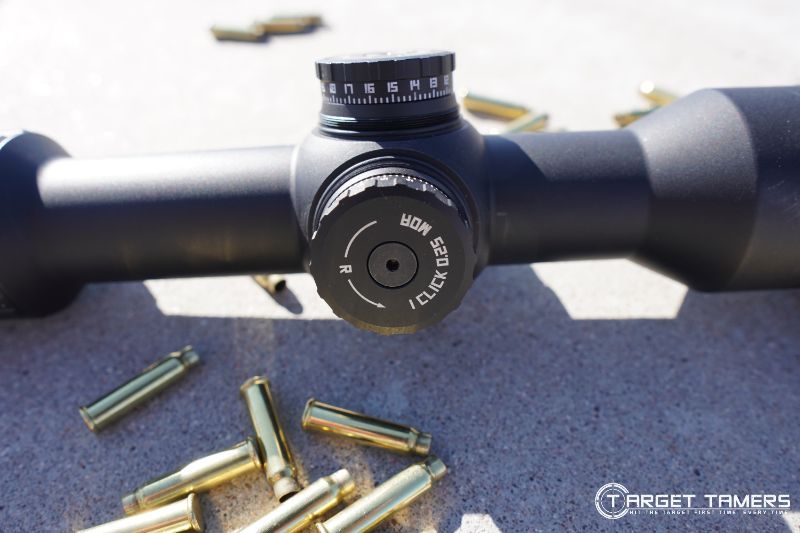
A 3” sunshade is included in the box with the Sig Sauer Sierra6BDX 2-12x40 riflescope. It extends the length to an approximate 13.8”. A sunshade prevents glare and reflections from the objective lens.
In my opinion, the sunshade adds a sexy allure to the overall appeal of the badass scope – just saying.
Below: Threaded objective lens and sunshade, measured length of sunshade attached to the Sierra6 and the scope with the 3" sunshade attached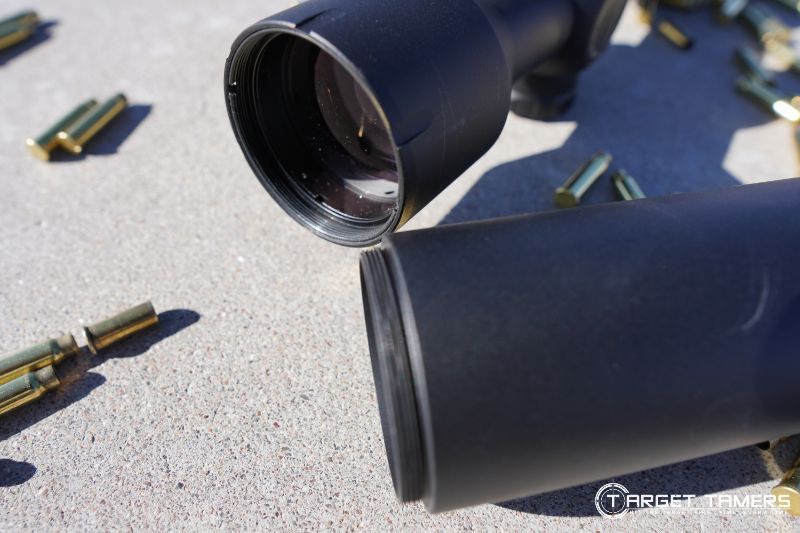
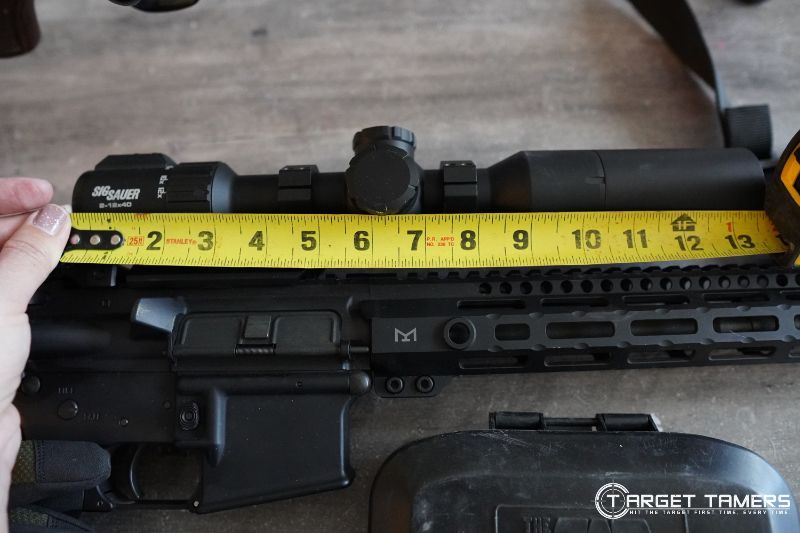
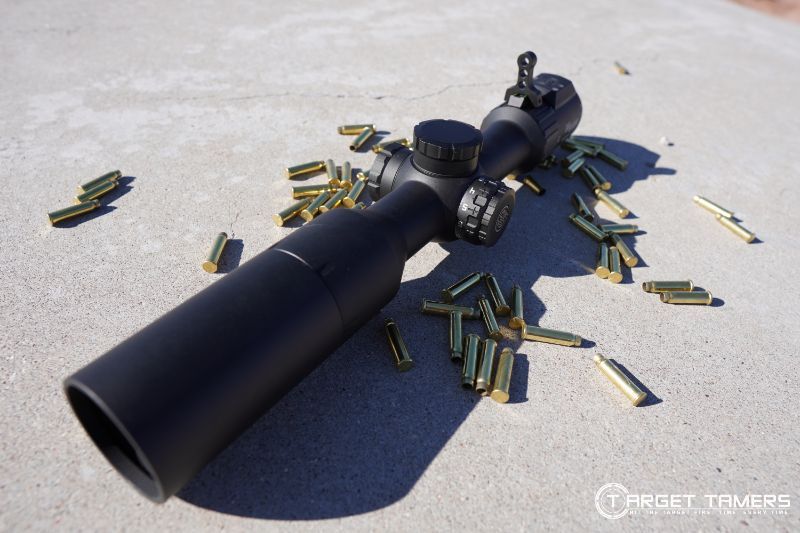
Go the Distance with the Sierra6BDX Scope
There is certainly a lot more to explore on the Sierra6BDX riflescope, especially considering that its maximum potential for productivity is when it’s paired with a BDX rangefinder. It was once considered futuristic technology but is now a state-of-the-art feature to take advantage of in the present.
I’m a big fan of the tactile and crisp turrets that are also resettable to zero – just don’t lose that tiny wrench that came with it because that is the tool needed to remove the turret cover/plate.
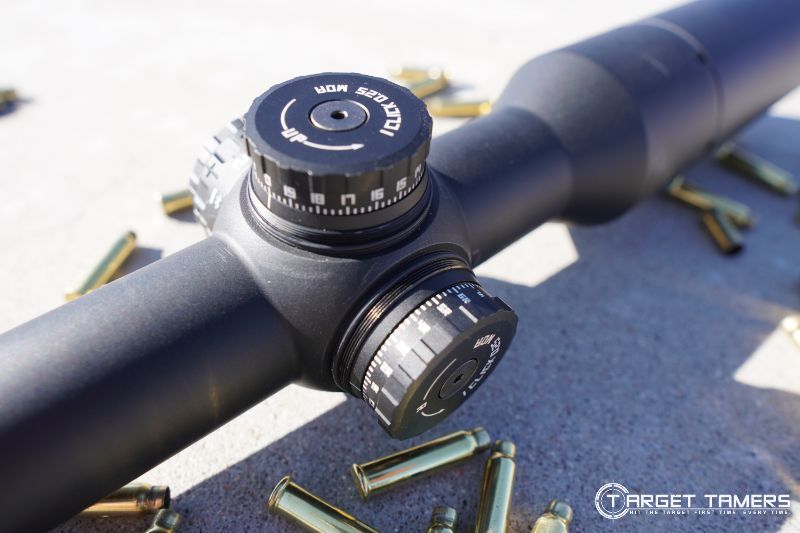
It didn’t take much to zero in at 100 yards, and with 60 MOA of travel, there’s the potential to go the distance with the Sierra6 – and that’s the whole point of the BDX ain’t it?
Further Reading

